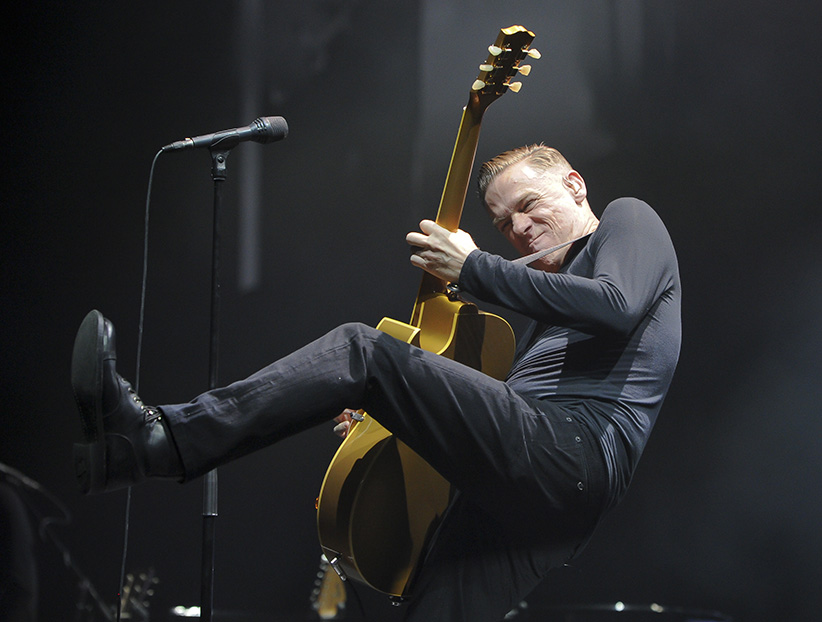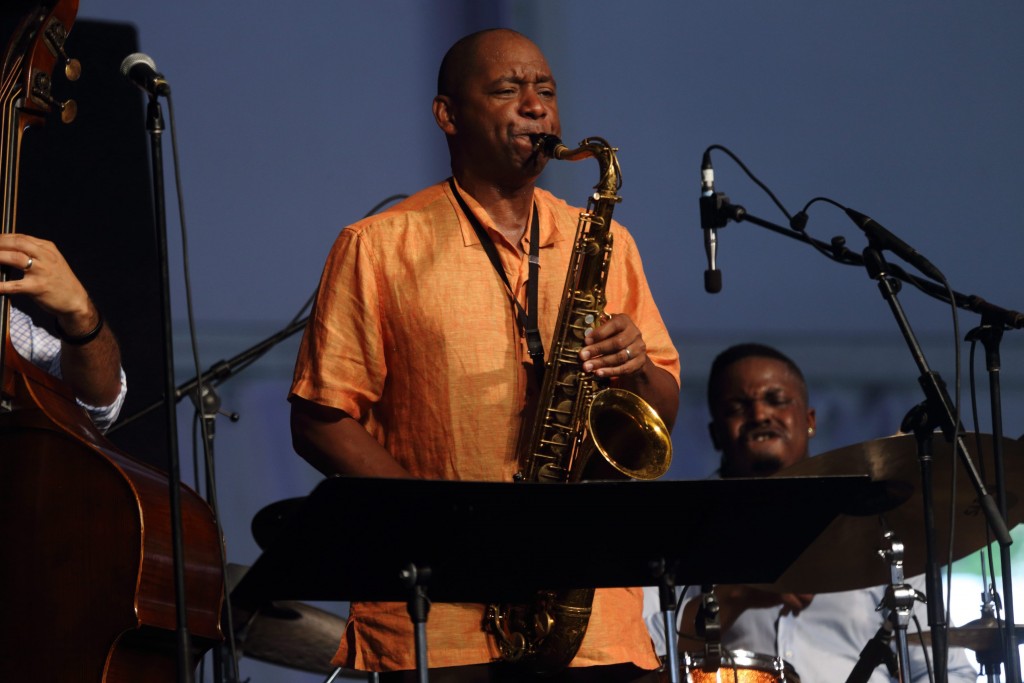Paul Wells: The music I liked in 2015
Paul Wells missed out on our 2015 Missed It List. But here’s the best music he heard in 2015 all the same.
Share

A bunch of us were busy putting together that big town hall with the Prime Minister when my colleague Adrian Lee was hoping I’d pitch in to the 2015 Missed It List, our agreeably raggedy attempt, as a group, to point out what was good and overlooked in culture both high and low in 2015. So I missed my chance to contribute. Sorry, Adrian. On Twitter, however, a few people asked what I liked in music in 2015.
So here’s what I heard that I liked. Recorded music first, then live concert performances. Genre allocations are all over the map, but I spend most of my time listening to classical music these days, followed by jazz, followed by what everyone else listens to. The only criterion here is excellence, on the terms of the chosen idiom.
RECORDINGS
Maria Schneider, The Thompson Fields. I probably read a half-dozen reviews of the latest by the 55-year-old Minnesota-born big-band leader who is the most admired bandleader in large-ensemble jazz. None mentioned that for long stretches of this album the Maria Schneider Orchestra barely a big band at all. She has 18 musicians on hand, but on several tracks she uses only four or five at a time. Often it’s accordionist Gary Versace, guitarist Lage Lund, pianist Frank Kimbrough and one or two horns. Versace is probably the whole session’s MVP, and again, nobody I read mentioned that this is an album built from an accordion on up. When the winds and brass do come in as a section, it’s often for washes of sound behind the soloists. Schneider’s music was always delicate, but her mid-career willingness to tighten her focus makes it more bracingly intimate than ever.
Paul Merkelo, French Trumpet Concertos: Merkelo is the American-born principal trumpet player in the Orchestre symphonique de Montréal, and trumpet players know he’s fiercely talented and proud. His most ambitious recording features Merkelo as soloist in front of his orchestra, with Kent Nagano conducting three very French 20th-century concertos. Now, the thing is, no record company wants an album of 20th-century French trumpet concertos, so Merkelo raised the money for the project himself from private donors and a Kickstarter campaign. Why go to the trouble? To establish himself as one of the really great trumpeters. These pieces are hard, and they test a trumpeter’s endurance. In the old days an album like this would be recorded in several sessions over many days. Merkelo performed them live, in concert, on one night. That’s just nuts. A lesser man’s face would fall off. And you can ignore that information if you like, because his bright sound and rhythmic assurance make this memorable as music, not just as athleticism.
Bryan Adams, You Belong To Me. One track, the first, off the rocker’s new (19th!) album Get Up. The album as a whole is uneven, unfussy, plainly written and recorded in a few days with a small band and no bells or whistles. A tribute, Adams says, to the music that made him want to play for a living when he was a kid. The opening track boots along like a dream, has three or four perfect melodic hooks, and then it’s done. A simple pleasure. They’re rare enough.
Related: Bryan Adams is back, and he’s partying like it’s 1990
Ryan Adams, 1989. Probably you didn’t miss this, if you keep your ear to the ground, but I wanted to acknowledge its achievement, well beyond mere cleverness. He covers every song on Taylor Swift’s album 1989, quite transforming the material without mocking it and without forced eccentricity. The sincerest flattery, indeed. His version of Blank Space is terrifying.

LIVE PERFORMANCE
The Branford Marsalis Quartet, at the Ottawa International Jazz Festival, June 23. For nearly 35 years, and with wide detours (Sting’s band, Jay Leno’s TV show, a recent fondness for concerto appearances with orchestras) the saxophonist has been honing a set of ideas about small-group jazz. The personnel in his band changes — Justin Faulkner replaced Jeff Watts on drums, Joey Calderazzo replaced Kenny Kirkland on piano, Eric Revis inherited Bob Hurst’s bass chair — but the concept is consistent, and the current lineup has been together for half a decade, and in June it all came together with more force and cohesion than I’ve ever heard. Freewheeling, allusive, deeply indebted to blues roots, raucous as a summer storm. Music of absolute conviction.
The St. Lawrence String Quartet, at the Ottawa International Chamber Music Festival, July. Founded in Toronto and based at Stanford University since 1999. A bunch of showboaters, as string quartets go, largely thanks to first violinist Geoff Nuttall. He grew up in London, Ontario. He’s gangly, boot-clad, the kind of guy who lunges bodily into every phrase as though performance were exorcism. The Jon Stewart of chamber music, the New York Times called him. Cruel but fair. But here’s the thing: The St. Lawrences love Haydn’s music, and they settled in for a week to perform it several times, while Nuttall showed up at concerts by a half-dozen other quartets to explain to audiences, with humour and erudition, the Haydn those other bands would be playing. Here’s a video of Nuttall, with colleagues doing this musical evangelism at another venue. Music always needs explainers. Nuttall’s dedication makes him one of the best.